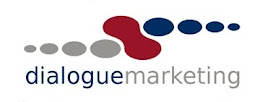Many of us simply don't stop to consider why it is that social media is important. The majority of what I read is regurgitated platitudes, where it is apparent that the author is drinking from the social media koolaid fountain, simply because it is social media. Just like the ridiculous IPO valuations of the late 90s, rationality will prevail, and the market will ruthlessly decide what flies and what dies.
Any decision, to incorporate social media into your marketing communication plan, has to make business sense. Don't do it simply because somebody says so. But there are some very sound reasons to consider social media. Some of the most valid reasons being exposure, credibility, market penetration, branding and news ways to communicate.
Here is one market commentator's perspective, somewhat edited for the sake of brevity.
If you read blogs about marketing small companies, you're inundated with "social media" advice about why you need a blog and a Twitter account and everything else.
Even my 90-year-old grandmother who doesn't own a computer and reads my wife's healthy cooking blog on print-outs asks "What's Twitter?" because she read about it in the New York Times.
Still, most people and most businesses don't think they need a blog.
In the next five minutes, I'd like to convince you that you have to jump into the world of blogging and Twitter and Facebook.
Back in the late 1990s, there was a day (let's call it October 19th, 1997) when suddenly every company in the western world decided they needed a website.
Not that anyone knew what a website was for. Was it a brochure? A storefront? A billboard? The geeks say "It's a new way of doing business." What the hell does that mean?
What pushed everyone over the edge was that on October 19th, if you didn't have a website you were invisible. Not just hard to contact, invisible.
Sure you had advertisement and PR; you could get a message in front of people. But then what? Would they go to your store? Call your 800 number and request more information? Not on October 19th; they want a URL, and if they don't get one they are finished with you.
Mind you, most companies still had no idea what websites were for, but they realized they had no choice. "This is the next big form of media, and whoever figures it out will win," it was collectively decided.
How do you "win" the Internet? No one knew, and even those geeks who indirectly convinced the world to live on the web didn't foresee its massive effect. The Internet was not, in fact, "just another form of media" — it created opportunities where Amazon is 34x bigger than Barnes & Noble, where NetFlix destroyed Blockbuster, and where Skype is worth $2.6B while telecom companies drop like flies.
It's not just a new media, it's a completely different world. Business models are changed forever.
Flash-forward to today, and the same pattern is emerging, just in a different guise.
Today, a new website is invisible on the Internet.
So how do you become visible? I suppose with enough money anything can be noticed, but in practice it ain't gonna happen. Certainly not if I wanted to bootstrap a little company from it.
The days of "have a website and advertise" are over. It's too expensive to be noticed on an Internet that's already full.
Social media is the only way a new website could get traction. Once it's visible, once you have things like incoming links and lots of regular traffic, then you have a shot at using traditional SEO techniques for staying visible. But social media is the only way to overcome static friction (short of spending crazy money).
Social media is already changing the rules of the marketplace, just like the web did a decade ago. It's still early of course and no one — not even the experts — knows where all this is going. But it's clear that times are changing again, and those that don't jump in will go the way of print media.
Will all these social networks and websites survive? No.
Do we understand how to use them most efficiently? No.
Will there be another new thing someday? Sure.
But today and for the foreseeable future, this is the world. You have to jump in even if you don't yet understand it.




1 comment:
Blogging has become one of the most powerful economical forces on the Internet today. It goes without saying that maintaining a blog is a good idea for the health of your business.
Post a Comment